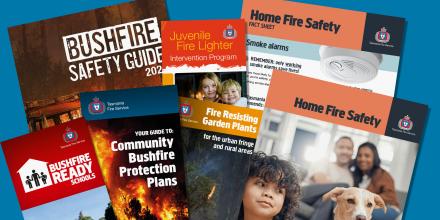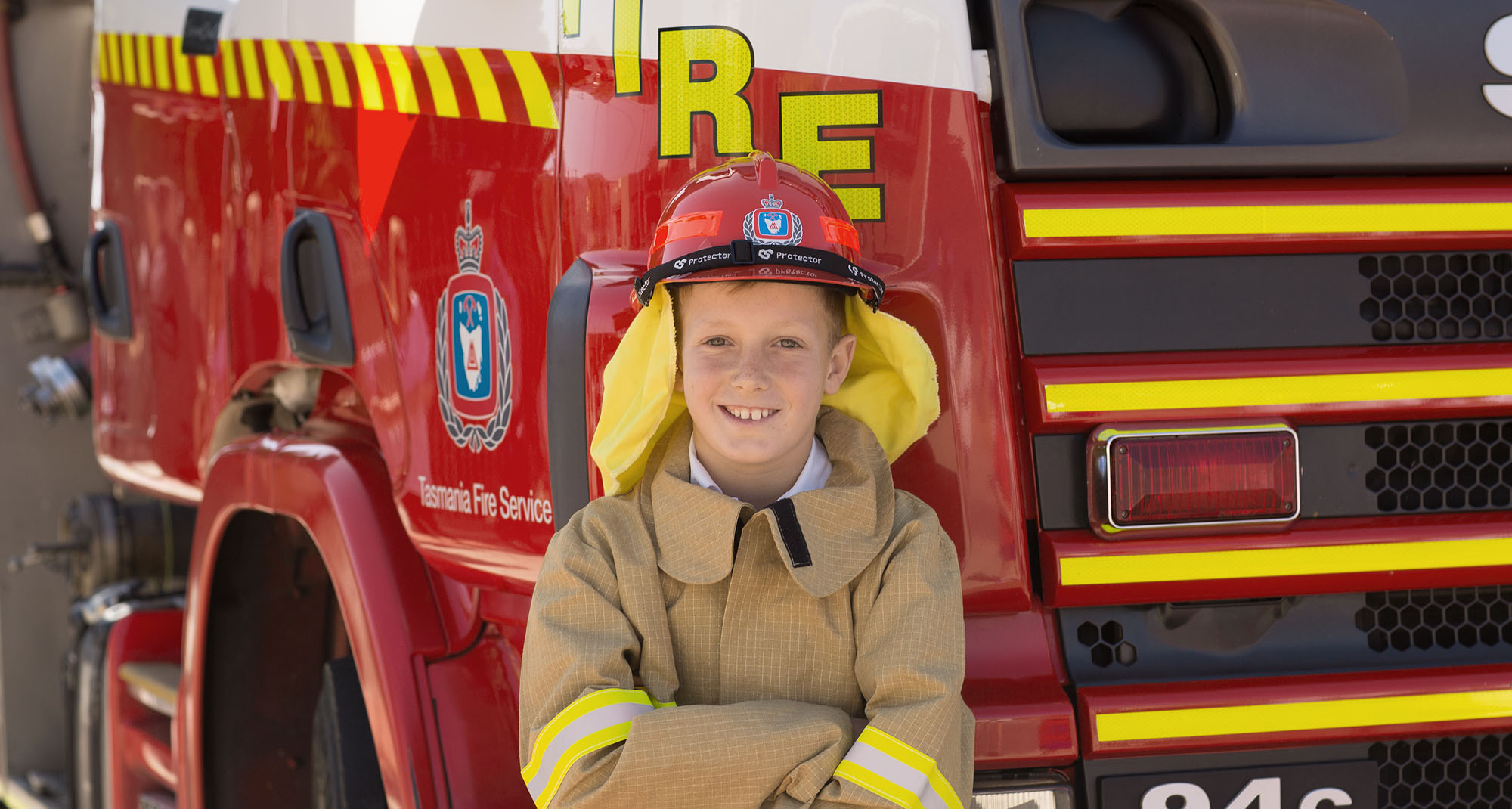What is JFLIP?
The Juvenile Fire Lighter Intervention Program (JFLIP) is a free, confidential, Tasmanian-wide service to help families deal with child fire lighting behaviour.
How can I enrol my child in the program?
If you are the parent or guardian of a child who is playing with fire, you can contact JFLIP at communityed@fire.tas.gov.au for advice or assistance.
Who is JFLIP for?
- The program is designed for primary school-aged children and their families.
- JFLIP may not be appropriate for all children, especially those with more complex behaviours. The staff involved in the program will let you know whether JFLIP is appropriate for your family, and may suggest other services that can help.
Does it work?
- JFLIP has provided assistance to over 500 children and their families.
- Research shows a success rate of over 90%. Most of the children who go through the program stop their unsafe fire behaviour.
What happens in the program?
- The program is delivered in your home by trained JFLIP firefighters.
- It is a family-based program, so ideally everybody who lives in the house will be involved.
The JFLIP firefighters will make several visits to your home. They will:
- Help you to manage your child’s fire lighting behaviour
- Teach you and your child how to make the home and family safe from fire
- Teach your child about the consequences of fire, and the difference between good fires and bad fires
- Help your child to take responsibility for their actions
- Help your child to feel good about themselves for being fire safe.
Information for Parents
Why do children light fires?
There are a range of reasons why children might light fires:
- Curiosity about fire
- Fascination with fire
- Attention-seeking behaviour
- Peer pressure
- Anger
- Revenge.
Younger children tend to light fires in and around their homes. They usually don’t mean to cause damage and don’t understand how dangerous fire can be.
Fire lighting can also be a sign that a child is worried or upset about something, and they may need extra help from other services.
Most children will show curiosity about fire at some stage. This is natural and normal.
This natural interest in fire is a problem if it develops into:
- Playing with matches or lighters
- Experimenting with fire
- Lighting fires
- Experimenting with bombs or aerosol cans.
Warning signs:
- Missing matches or lighters
- Matches or lighters in your child’s room, pockets or bag
- Burnt items such as paper or garden rubbish
- Burn marks on toys, clothes or bedding
- Burn marks in the house or cubby house
- Smell of something burnt
- Strong interest in fire or talking about fire a lot.
What can you do?
Supervise and educate your children:
- Supervise your children at all times, especially around fire, cooking and heating
- Teach your children that fire is a tool for adults to use, not a toy
- Don’t let your children use fire – helping with lighting the fire or burning off makes children think that they can control fire
- Teach your children facts about fire safety and the consequences of fire.
Remove the temptation:
- Lock away matches and lighters – just like you lock away medicines and other dangerous household substances
- Teach your children to bring you any unattended matches or lighters they find and reward them for their honesty
- If you are a smoker, think about giving up, smokers are more likely to have children who light fires.
Make your home fire safe:
- Lead by example – reduce the risk of fire by using fire, cooking, heating and electricity safely
- Have working smoke alarms in all the bedrooms and the hall outside bedrooms.
Make a plan to get them out alive:
- Every body in the house should know what to do if there is a fire – have a family escape plan and practice it.
Service Providers
About JFLIP
- JFLIP is designed for primary school-aged children and their families.
- It is suitable for children who light fires, usually out of experimentation, curiosity or fascination with fire.
- JFLIP is an early intervention program designed to prevent further firelighting.
- Participation in JFLIP is voluntary and family-based – the child and their parents/guardians and other family members are actively involved in the program.
- JFLIP is delivered in the family home.
- JFLIP is an educational program about fire safety.
- JFLIP uses basic social learning and behavioural principles such as positive reinforcement (praise for understanding of fire safety messages), self-efficacy (the child becomes the home fire safety officer) and stimulus control (parents keeping matches and lighters where the child can’t reach them).
- JFLIP is delivered by career firefighters trained in this program.
JFLIP is not appropriate
- For older children who have finished primary school.
- Where fire setting is persistent, malicious or part of a pattern of antisocial/criminal behaviour.
- For children in the Community/Youth Justice system.
- Where fire setting is related to psychopathology.
- Where professional intervention is required – JFLIP practitioners are firefighters with training in this program, not social workers or psychologists.
Referring a child to JFLIP
- JFLIP does not accept referrals from service providers.
- Only the child’s parent or guardian can refer them to the program.
- We suggest that you give a copy of the brochure parents/guardians of children who are lighting fires. Explain how the program can assist them and encourage them to make contact.
- The program requires the support of the parent/guardian to be successful. Their willingness to make contact and arrange for a visit is an indicator of how motivated they are to support the program and manage their child’s fire lighting behaviour.
- The program’s success depends on its voluntary, family-based approach.
Other support for juvenile firelighters
When a referral to JFLIP is not appropriate, the Community Education unit of TFS and its JFLIP practitioners may be able to assist other service providers working with young people who set fires by providing fire-related advice and resources.
Contact
Contact a Community Education Consultant at:
Tasmania Fire Service
GPO Box 1526
HOBART TAS 7001
Free Call: 1800 182 341
Fax: 6231 6527
Email: communityed@fire.tas.gov.au
Related pages

Home Fire Safety (HFS)
Protect what you value. Knowing what to do in a house fire and how to keep your home fire safe...

Online Ordering
Free Tasmania Fire Service giveaways and publications.

